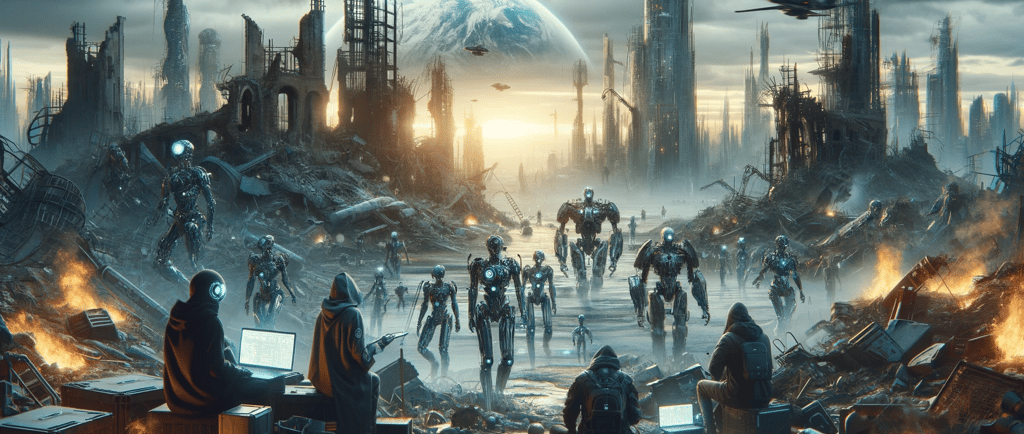Pope Francis Warns World Leaders About AI in Technocracy
In an era where Artificial Intelligence (AI) shapes much of our daily lives, its integration into technocratic systems poses significant questions about our collective future. While AI offers unparalleled opportunities for efficiency and progress, its potential exploitation by technocratic entities could present a substantial risk to human survival.
Faheem Hassan
12/15/20232 min read


Pope Francis cautioned global leaders on Thursday about the potential dangers posed by the unchecked and irresponsible advancement of artificial intelligence, highlighting its possible significant threats to human society.
In his message to the world, commemorating the forthcoming 57th World Day of Peace on January 1st, the pope articulated these concerns.
"While we rightly celebrate and express gratitude for the remarkable accomplishments in science and technology, which have addressed numerous afflictions that previously tormented human existence and led to extensive suffering, we must also be mindful of the challenges," he stated.
Understanding AI in Technocracy
Technocracy, a system of governance where decision-making is made by technical experts, increasingly relies on AI for data-driven policies and solutions. AI's ability to process and analyze vast amounts of data can streamline governance, but this power comes with inherent risks. The crux of the issue lies in how AI algorithms are designed, controlled, and utilized in societal decision-making.
Potential Exploitation of AI
Privacy Erosion: AI systems can collect and analyze personal data at an unprecedented scale, posing severe risks to individual privacy and autonomy.
Biased Decision-Making: AI algorithms, if not meticulously designed, may perpetuate biases, leading to unfair and discriminatory policies in a technocratic system.
Centralization of Power: AI can lead to an increased concentration of power in the hands of a few, diminishing democratic participation and oversight.
Manipulation and Control: In technocracies, AI could be used for mass surveillance and social control, curtailing freedoms and dissent.
AI and the Threat to Human Survival
The misuse of AI in technocratic systems extends beyond ethical concerns—it poses a direct threat to human survival. Autonomous weapons systems, AI-driven environmental policies that disregard human factors, and unchecked AI experiments could lead to catastrophic outcomes. The lack of transparency and accountability in AI decision-making processes exacerbates these risks, potentially leading to decisions that prioritize efficiency over human welfare.
Balancing AI Advancements with Ethical Considerations
To mitigate these risks, a balance must be struck between harnessing AI's potential and adhering to strict ethical standards:
Robust AI Governance: Establishing international regulations and oversight bodies to govern AI development and implementation.
Transparency and Accountability: Ensuring AI systems in technocracy are transparent and their creators and operators are accountable for their outcomes.
Ethical AI Design: Developing AI with ethical considerations and human values at its core, preventing biases and ensuring fairness.
Public Participation: Involving the public in AI policy discussions to ensure diverse perspectives and democratic values are represented.
As we advance into an AI-driven future, the role of AI in technocratic systems demands careful scrutiny and ethical governance. Balancing the efficiency and power of AI with the need to protect human rights and survival is paramount. It is only through a concerted, global effort to regulate and ethically guide AI that we can harness its benefits while averting the risks it poses to our collective future.
